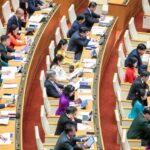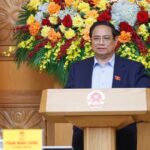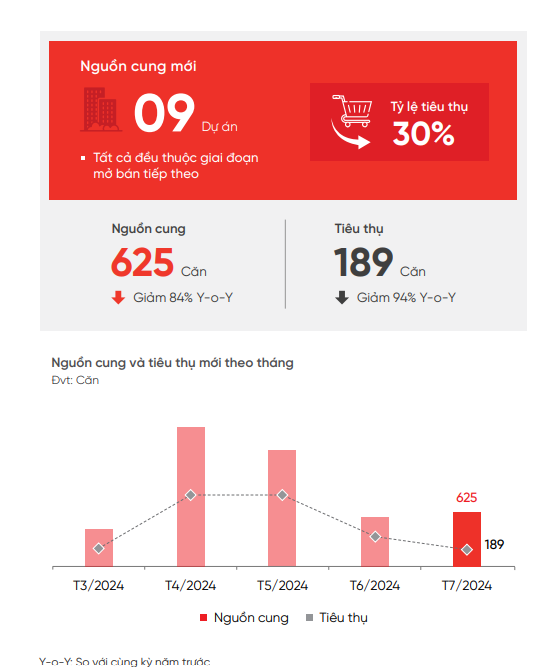
On May 4, 2025, the Political Bureau issued Resolution No. 68-NQ/TW on private sector development. The Resolution introduced breakthrough orientations and solutions, reconfirming the role and position of the private sector in the national economy.
With over 940,000 businesses and more than 5 million household businesses operating, the private sector contributes nearly 50% of GDP, over 30% of state budget revenue, and employs more than 80% of the social labor force.
Among them, real estate enterprises play a special role in leading important development axes such as urbanization, infrastructure, industry, trade, tourism, and services.
Dr. Nguyen Van Dinh, President of the Vietnam Real Estate Brokers Association (VARS), emphasized: “Real estate enterprises not only directly create value but also lead more than 40 related industries, contributing to economic growth and creating millions of jobs.”
He added that in 2023 alone, private real estate businesses contributed over VND 37,000 billion to the state budget, ranking second in the national private enterprise sector. Notably, among the top 10 multi-sector private groups with the highest tax payments in 2024, three have real estate as their core business.
However, according to Dr. Dinh, in recent years, the real estate market has faced numerous challenges due to prolonged bottlenecks, notably legal barriers and overlapping administrative procedures.
“Many enterprises, including large corporations, are facing project stagnation for years due to obstacles in approval, land clearance, or land-use right certificate issuance. These bottlenecks not only cause economic losses but also seriously erode investors’ confidence,” he said.
Resolution 68: Breakthrough Mechanism, a Boost for the Market
Given this situation, Dr. Nguyen Van Dinh highly appreciated the issuance of Resolution 68. He called it a “real revolution in mechanisms” as, for the first time, a high-level document strongly affirmed the pivotal role of private enterprises and proposed specific and practical solutions to existing bottlenecks.
According to the VARS President, Resolution 68 not only opens up thinking but also sets very specific and measurable goals. For instance, by 2025, it aims to complete the reduction of at least 30% of the time for handling administrative procedures, business conditions, and legal compliance costs, with further significant reductions in subsequent years. These targets have not been directly mentioned in previous resolutions.
Another breakthrough emphasized by Dr. Nguyen Van Dinh is the task of building and perfecting the National Land Database, connecting it with the National Data Center and related systems.
“When all land data, transaction history, planning, and legal status are digitized and made public, enterprises will have a transparent foundation for asset valuation and more accurate and efficient investment planning,” he said.

Resolution 68 also aims to implement electronic transactions in the land sector, minimizing time and risks in land clearance, red book issuance, land leasing, and allocation. These are considered crucial points to help projects be deployed quickly, reducing financial, administrative, and opportunity costs, thereby allowing enterprises to adjust selling prices reasonably, especially for affordable housing products for the majority of the population.
Dr. Nguyen Van Dinh predicted that, in the short term, there might be delays in processing due to the reorganization of the apparatus towards a more streamlined and efficient structure. However, in the medium and long term, if the solutions in Resolution 68 are implemented seriously and synchronously, the administrative apparatus will operate more smoothly, and the project approval and licensing process will be more transparent and streamlined.
“With a transparent process, the market will have a basis for fair valuation. Enterprises will also save costs, thereby reducing selling prices. This is especially important for social housing and reasonably priced commercial housing segments, which the State will prioritize in the coming time,” he affirmed.
Dr. Dinh believed that when the market supply is restored in a diverse and reasonable direction, the supply-demand mismatch will be addressed. Speculation, artificial scarcity, and price manipulation will be eliminated, gradually restoring market confidence.
“When confidence returns, capital will follow. Vibrant transactions and thriving investments will bring the real estate market back to its role as a growth driver for the economy,” emphasized Dr. Nguyen Van Dinh, President of VARS.
The New Congress: A Proposal to Shorten Term Lengths and Fast-Track Elections
As the 9th session of the 15th National Assembly enters its second week, lawmakers are focused on discussing and deliberating on the proposed amendments to the Law on Election of Deputies to the National Assembly and People’s Councils. This important piece of legislation is a key focus for the assembly, as it aims to ensure fair and equitable elections that truly represent the will of the people. The discussions are centered around ensuring that the election process is accessible, inclusive, and reflective of the diverse nature of our great nation.
‘Shortcuts to Success’ in Vietnam Has Never Been This Obvious
The resolution No. 68-NQ/TW, issued by the Political Bureau on May 4, 2025, marks a pivotal turning point for the development of the private economy. This landmark resolution introduces a comprehensive set of solutions aimed at eliminating red tape, enhancing protection for businesses entering the market, and unleashing the full potential of economic resources.
Unlocking Private Sector Innovation: A Boundless Approach to Economic Growth
On the afternoon of May 8, Prime Minister Pham Minh Chinh chaired a meeting with the Policy Advisory Council to finalize the draft resolution of the National Assembly on special mechanisms and policies to promote the private economy. This crucial step forward aligns with Resolution 68 of the Political Bureau.
“Unleashing Private Sector Growth: A Call for Swift Legislative Action”
“On the afternoon of May 7th, with a sense of urgency to implement Resolution 68 of the Politburo on private sector development, Prime Minister Pham Minh Chinh chaired a meeting of the Government’s Standing Committee on drafting a resolution of the National Assembly on special mechanisms and policies for private sector development. This pivotal gathering underscores the government’s commitment to fostering a thriving and vibrant private economy, recognizing its vital role in driving Vietnam’s economic growth and prosperity.”
“Cut Red Tape and Go Digital: Businesses Yearn for Streamlined, Efficient Administrative Procedures”
“On behalf of the business community, Mr. Tu Tien Phat, CEO of ACB, expressed at the seminar for contributing to Resolution 68, the strongest desire to vigorously promote administrative procedure reform towards simplicity, transparency, and comprehensive digitalization. This would provide a strong impetus for a robust recovery in production and business activities.”











![[Photo Essay]: Experts, Managers, and Businesses Unite to Forge a Path Towards Sustainable Green Industry](https://xe.today/wp-content/uploads/2025/07/z678592918-150x150.jpg)


![[Photo Essay]: Experts, Managers, and Businesses Unite to Forge a Path Towards Sustainable Green Industry](https://xe.today/wp-content/uploads/2025/07/z678592918-100x70.jpg)






